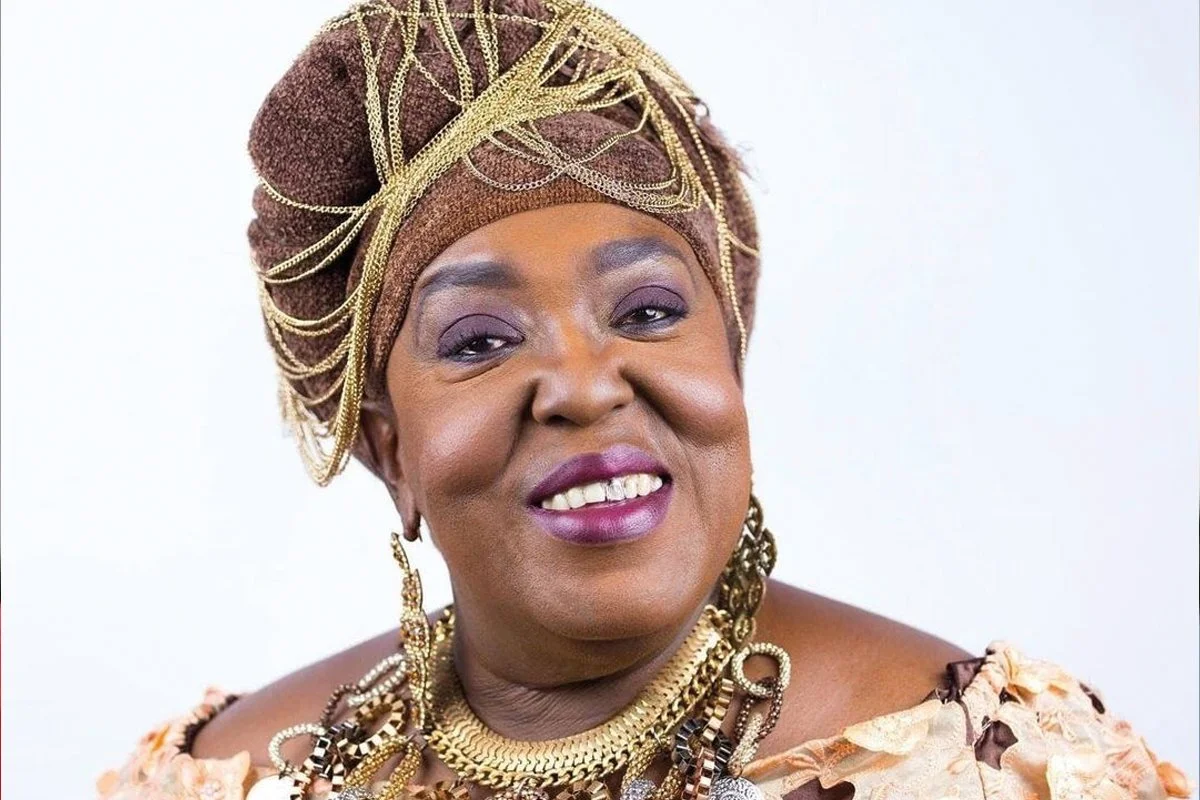Singing Sandra: Mother of the Calypso Fraternity
Few people outside of Trinidad and Tobago or aficionados of calypso music have heard of Singing Sandra. Though she did not attain international fame like her compatriots Nicki Minaj, Heather Headley, and Hazel Scott, Sandra DesVignes-Millington, otherwise known as Singing Sandra is a Trinbagonian legend.
“I never saw myself as a calypsonian. I’ve always loved folk, I’ve always loved gospel. I saw myself as a gospel singer, as a folk singer.”
If Singing Sandra's chosen music genre was rhythm and blues, soul, reggae, jazz, or gospel, she would have garnered global attention. Still, her dramatic performances, soulful, commanding voice, and powerful messages of positivity—like “Failure Is Not An Option”—made her a giant in the calypso arena.
Destiny took Singing Sandra down the path of calypso, a derivative of West African “Kaiso,” the music of the twin-island Republic of Trinidad and Tobago.
“My gift from God is to go out there and preach the Gospel through kaiso and by extension to defend and highlight the lesser people who don’t have a voice...”
By calypsoes our political, social, and cultural stories are told, and Singing Sandra told those stories with passion, determination, and conviction. Her songs—many autobiographical—address topics which are as relevant today as when she first performed them back in the 80s, 90s, and early 2000s. She always gave credit and heaped praise on songwriters like Ortneil Bacchus and Christophe Grant, who knew intuitively the messages Singing Sandra wished to deliver.
Singing Sandra was highly selective in her renditions, choosing to sing calypsoes that reflected her life experiences, strong values, beliefs, and opinions, and social topics close to her heart. In “Message to the Caribbean Man” she implored Caribbean men to stay home and not leave women to rear the children alone. Children didn’t need daddies, they needed fathers. "Your duties you must affirm. You are much more than sperm.” As the child of a single mother and an absentee father, Singing Sandra sang about what she knew. She came from a matriarchal family, like many other African-Trinbagonians.
In other calypsoes, Singing Sandra expressed her views on personal empowerment (“Empowerment”), poverty and crime (“Voices From the Ghetto”; “For Whom the Bells Toll”), relationships (“Women Their Own Worst Enemy”; “Older Men”), nation-building (“True Colours”; “Song for Healing”; “I Stand for Trinbago”), the ills and injustices in society (“No Child Shall Be Left Behind”; “Equal Justice ”), and the senselessness of war (“The War Goes On”). The love she had for her African ancestry is apparent in “Ancient Rhythms” and also by the clothes she chose to wear, often draped in African attire like a Queen.
Born and raised in a poor and rough area of Port of Spain, Trinidad and Tobago’s capital city, Sandra often spoke of the poverty she endured growing up, like eating flour porridge. She said her mother’s love and the values—like independence—instilled in her contributed to her rise from poverty to prominence. To make ends meet, she regularly missed school, undertaking low pay menial jobs in bakeries, groceries, and snackettes to earn extra income for herself and her mother. At fifteen, she left school without graduating.
However, Singing Sandra always had an ear for music and a talent for acting and dancing. She represented her village in musical and theatrical productions, which got her noticed. In her twenties, an older male calypsonian, with the sobriquet Dr. Zhivago, approached her to sing two of his calypsoes (“Pan For Independence” and “The Raper Man Comin”) which he felt were more appropriate for a woman to sing. This opportunity thrusted Singing Sandra into the male-dominated, calypso arena. She was recruited to perform at calypso shows, and won many Calypso Queen competitions, including the Calypso Monarch in 1999 and 2003.
As a leading woman in the male-dominated calypso genre and machismo society that is Trinidad and Tobago, Singing Sandra became a spokesperson for the downtrodden, and a proponent of woman power. When Caribbean Beat Magazine interviewed her in 2000, Singing Sandra recounted:
“I said to someone a few days ago, men tend to say that because of a certain part of King James’s version of the Bible—woman was created from a rib from Adam. And I said, ‘Listen to me, when you see Adam tell him that Sandra said he can come back and take his rib, because women can stand on their own.’ I mean thank Adam, but God would have created us anyway.”
Singing Sandra didn’t intend to flatter any man, Adam or otherwise.
“The men in Trinbago call me a man basher but let me tell you something I’m not a man basher. I’m an observant, rebellious female!”
Decades before the #MeToo Movement, Singing Sandra was outspoken about sexual harassment women faced in the workplace. It’s hard for a young woman to get a job in Trinidad because of what men expect from women in exchange. In her graphic accounts, she highlighted the intimate and intrusive questions men ask women at the job interview. Her song "Die With My Dignity" resonated with so many women that it became the national anthem of women in Trinidad and Tobago, and is considered to be Singing Sandra’s signature calypso. It would captivate women audiences so much that they would join her in the chorus, chanting, “They could keep their money, I go keep my honey and die with my dignity.”
Singing Sandra died on January 28, 2021 at the age of 64, leaving behind a catalog of socially conscious calypsoes. Singer, performer, entertainer, educator, Singing Sandra will always be loved and respected as a positive role model for other women in calypso.
This is the second year Trinidad and Tobago celebrates a virtual Carnival because of Covid-19, and the second year we are without our beloved Singing Sandra, mother of the calypso fraternity and cultural icon. In an interview with Morvant Love Magazine, she voiced, “When I die I know my name will live on and I will always be made reference to.”
That’s true, at least in the Caribbean. However, Singing Sandra is a name that deserves to be recognized beyond Caribbean borders. As Russia has declared war on Ukraine, her compelling message conveyed in “The War Goes On” could not be more relevant. Until the power of love overshadows the love of power, the war will go on. Singing Sandra, sing!
(Image courtesy of Caribbean National Weekly)
Iris Leona Marie Cross is committed to telling stories that cover issues like colorism, being single and childfree, sexual harassment, obesity, dealing with grief. Iris was born, and currently resides, in Trinidad and Tobago and has lived in the U.S., Canada, and England. Iris was the July 2020 Gotham Writers 25-word story winner and Preservation Foundation’s nonfiction contest finalist 2020 and 2021. Iris has stories published in: The Best New True Crimes: Small Towns (Mango Publishers, 2020), Storyhouse Weekly Reader, HELD Magazine, The Best New True Crimes: Partners In Crime (Mango Publishers, 2022), and Parenthood Uncensored (Keeping It Under Wraps, 2022). Follow Iris on Twitter: @LeonaCross15



